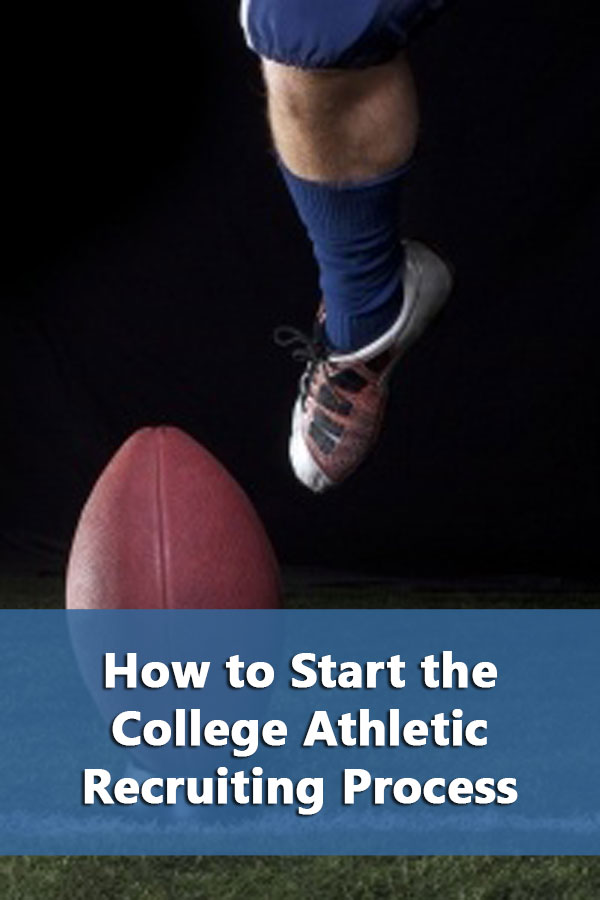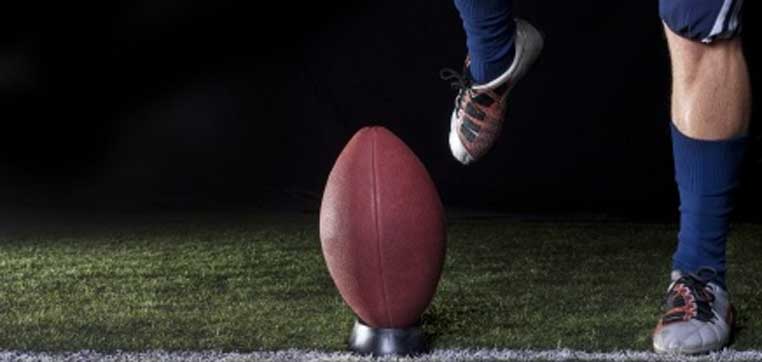 You’ve heard the saying, “you don’t know what you don’t know?” It’s relevant to college athletic recruiting–when starting out, many families don’t know where to begin or what to ask. So I put together this list of posts for athletes and their families just starting the college athletic recruiting process. After reading these, you should have a basic understanding of college athletic recruiting that will allow you to start asking the right questions.
You’ve heard the saying, “you don’t know what you don’t know?” It’s relevant to college athletic recruiting–when starting out, many families don’t know where to begin or what to ask. So I put together this list of posts for athletes and their families just starting the college athletic recruiting process. After reading these, you should have a basic understanding of college athletic recruiting that will allow you to start asking the right questions.
Need to start at the very beginning then read:
What Athletes Need to Know Before Starting the College Recruiting Process
This is for people who may have some idea that the NCAA has something to do with sports but have no idea what divisions are and have never heard of the NAIA or the eligibility center. If you want to be recruited for college sports, you need to understand who is doing the recruiting.
Think an athletic scholarship is going to pay for college then read:
How to Figure Out Your Chances of Getting a College Athletic Scholarship
If you’re pursuing college athletics as a way to pay for college, you really need to understand the probability of receiving one. This is for all the athletes who haven’t had multiple coaches recruiting them since they were sophomores.
Athletic Scholarships: 12 Things You Need to Know
Getting an athletic scholarship doesn’t just depend on the number of players. There are all kinds of details that affect the kind and number of available athletic scholarships. Understanding them will help you expand your search to improve your chances of getting one that works for you.
Don’t make these assumptions about the college athletic recruiting process, read:
5 Signs that You Don’t Understand the College Athletic Recruiting Process
I’ve created a list of some of the most common mistakes families make during the college athletic recruiting process. This is actually a three-part post covering mistakes about financial issues and athletic abilities as well as the general recruiting process.
What High School Baseball Players Need to Worry About to be Recruited by Colleges
This isn’t just for baseball players. All high school players entering the recruiting process need to be aware of these issues and keep on top of them if they want to be successful.
Want to be Recruited to Play in College? Draw Them a Map
Waiting to be recruited is the biggest mistake you can make. Most schools don’t have large recruiting budgets. Therefore, being proactive means that you’ll be more likely to be recruited.
Wondering if you should spend money to get recruited then read:
Should You Use an Athletic Recruiting Service?
There are a lot of businesses offering recruiting services, warning athletes and their families of the perils of going through the college athletic recruiting process alone. This post covers the pros and cons of using a recruiting service and what you should look for.
8 Ways Showcase Camps Can Be a Waste of Money
Before you spend money on attending a showcase, prospect, or ID camp, make sure that you’re going to get the most out of it. Check out these warning signs that you should pass on a camp for now.
Ready to start contacting coaches? Then you need to read:
26 Helpful Athletic Resumes and Player Profile Templates
No matter the sport, you’re going to have to put together an athletic resume that shows your accomplishments as part of the athletic recruiting process. There is no “right” way to do it but it must be done. This post has links to useful examples–find the one that works for you.
51 Questions to Ask College Coaches on College Recruiting Visits
Make sure you have something to talk about once you contact the coach. Don’t waste your and the coaches’ time on questions that you should already know the answer to. Browse these questions to find the ones that will help decide the best college options for you.
How Many Colleges to Target to Play College Baseball
While this is targeted specifically for baseball, the principles are the same. You need to start with a large list of potential colleges because it can get small very quickly. The fewer schools on your list, the less likely you are to be recruited.
What You Need to Know About Verbal Commitments
Verbal commitments happen. You need to understand exactly what they mean and if it’s something you should do.
Best Way to Answer Coaches Asking What Other Schools Are Recruiting You
This is one of the questions that players need to be prepared to answer. It’s important to understand why you should tell a coach what other schools are recruiting you–if it’s true.
Don’t waste the coaches time, make sure you read:
Four Things You Should Know Before You Contact College Coaches
Unless you’re one of those athletes that are listed as potential recruits on various college sports websites, you should be contacting the coach first as part of the recruiting process. This post tells you what you need to know before you make the phone call.
Coaches can only contact players during certain times, read this to stop worrying so much:
When Will College Coaches Start Contacting Me?
This is a basic introduction to recruiting periods and contact rules for NCAA Division 1 schools. Players looking to play D1 need to know the rules for their sports so that they can make things as easy as possible for the coach.
Don’t risk missing a recruiting opportunity, keep everything organized:
4 Simple Tips to Organize Your College Recruiting Process
Some basic information on how to keep track of all of the details of the recruiting process. Given that the athletes most likely to get recruited start with at least 50 schools and then narrow the search, there’s plenty of information to keep up with.
And most importantly, don’t be “that” player:
3 Types of Players that Don’t get Recruited by Colleges
Even with all of the information available online, some players don’t get recruited because they fall for some myths about college recruiting or aim too high in terms of athletic competition. There is really no reason to be “that” player who ultimately doesn’t get recruited.
CONNECT WITH OTHER PARENTS WITH PROSPECTIVE COLLEGE ATHLETES
JOIN THE COLLEGE RECRUITING PARENT ZONE



3 thoughts on “How to Start the College Athletic Recruiting Process”